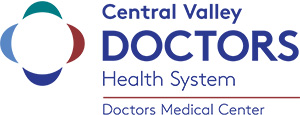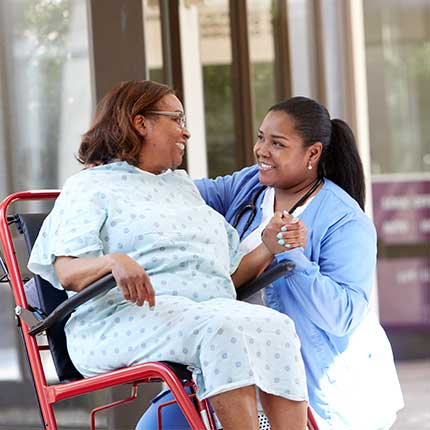Healthy Living: Cardiovascular
4 Types of Angina (Chest Pain)
Do you experience chest pain or discomfort that may feel like squeezing or pressure in your chest or even indigestion? You may be suffering from angina. Aside from chest pain, you may also experience discomfort in your arms, neck, shoulders, jaw, back or upper abdomen. There are many other symptoms, which may vary depending on the type of angina that you have.
Why Do You Experience Angina?
Angina may happen when your heart doesn’t get enough oxygen-rich blood. It is a symptom of an underlying heart condition, usually coronary heart disease (CHD) or coronary microvascular disease (MVD).
What Are the 4 Types of Angina?
Understanding the four types of angina can help you determine how to respond, whether you need rest, schedule an appointment with a cardiologist for treatment or call 911.
| Types of Angina | Causes or Triggers | Symptoms | Treatment Options |
| 1. Microvascular Angina |
|
Note: If you experience severe shortness of breath, call 911 or ask someone to bring you to the emergency room (ER). |
|
| 2. Stable Angina or Angina Pectoris |
|
|
|
| 3. Unstable Angina or Acute Coronary Syndrome |
Note: Unstable angina requires emergency care. |
Note: If you experience symptoms of a heart attack, call 911 or ask someone to bring you to the ER immediately. |
|
| 4. Variant (Prinzmetal) Angina or Angina Inversa |
|
|
|
1. Microvascular Angina
Causes or Triggers
- MVD
- Spasms within the walls of tiny arteries that reduce blood flow to the heart
- More common in women
Symptoms
- Pain may be more severe than other types of angina
- Pain that may come with shortness of breath, fatigue, sleep problems or lack of energy
- Pain may be noticed when experiencing mental stress or during routine daily activities
Note: If you experience severe shortness of breath, call 911 or ask someone to bring you to the emergency room (ER).
Treatment Options
- Medications
- Medical strategies that increase blood flow and reduce workload in the heart
2. Stable Angina or Angina Pectoris
Causes or Triggers
- Physical activity or emotional stress
- Exposure to very cold or hot temperature
- Heavy meals
- Smoking
Symptoms
- Pain often lasts 5 minutes or less
- Pain may feel like indigestion or gas
- Pain may feel like it spreads to the arms, back or other areas
Treatment Options
- Rest
- Medication (e.g., nitroglycerin)
3. Unstable Angina or Acute Coronary Syndrome
Causes or Triggers
- Coronary arteries narrowed by fatty buildups (atherosclerosis)
- Fatty buildups may rupture and cause injury to the coronary blood vessel, lead to blood clotting and block the blood flow to the heart
Note: Unstable angina requires emergency care.
Symptoms
- Unexpected pain that occurs during physical activity or when you’re resting or sleeping
- Pain that may last longer than stable angina
- Pain that may get worse over time
- Pain that doesn’t go away with rest or medication
- Chest pain or discomfort that may lead to a heart attack
Note: If you experience symptoms of a heart attack, call 911 or ask someone to bring you to the ER immediately.
Treatment Options
- Cardiac catheterization
- Percutaneous coronary intervention (PCI)
- Coronary artery bypass graft surgery
4. Variant (Prinzmetal) Angina or Angina Inversa
Causes or Triggers
- Spasm in the coronary arteries caused by stress, smoking, cocaine use or exposure to cold weather
- Medications that narrow or tighten your blood vessels
- Usually occurs in younger patients
Symptoms
- Severe chest pain or discomfort that occurs while resting, at night or early in the morning
Treatment Options
- Medications (e.g., calcium antagonists and nitrates)
Other Treatment Options for Angina
Your doctor may also recommend cardiac rehabilitation or lifestyle changes to treat angina such as:
- Being physically active
- Eating healthy
- Limiting alcohol intake
- Lowering blood cholesterol levels (if needed)
- Lowering high blood pressure (if needed)
- Managing diabetes (if needed)
- Quitting smoking
- Stress management
- Weight loss or maintaining a healthy weight
Final Thoughts
Not all chest pain is angina. We recommend that you see a cardiologist if you experience chest pain to determine whether it’s angina or a symptom of a condition other than heart disease. Your doctor may ask about your symptoms and medical history, perform a physical exam, ask about your risk factors for heart disease and other cardiovascular conditions or recommend further tests and screenings. Meanwhile, if you have unstable angina, please do not delay care. Call 911 or ask someone to bring you to the nearest ER as it may lead to a heart attack. Your high-quality, compassionate care is our #1 priority.
Source: American Heart Association



